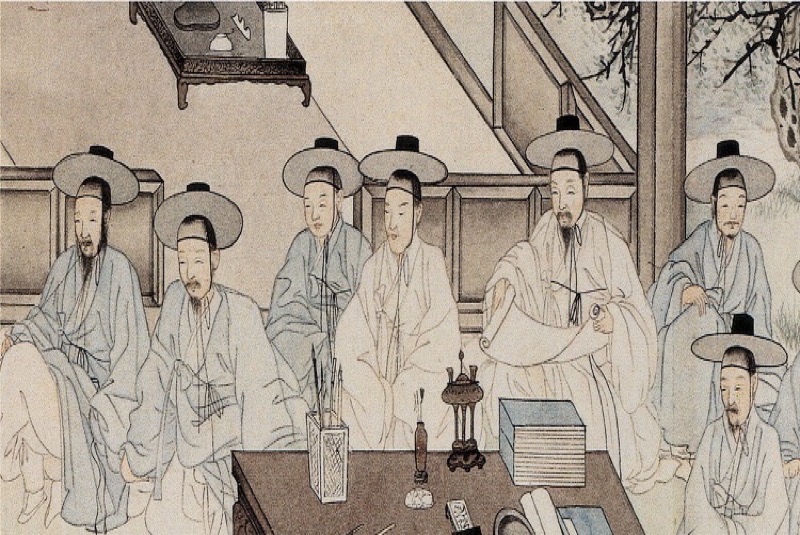A few years ago, Amul Butter featured seven members of BTS, a Korean boy band, enjoying a slice of buttered bread from the iconic Amul girl. Bangtanboys, or BTS, is the first Korean band to sweep the international stage by seizing the top ranks of the billboard, and now they are also sharing the face of our “asli butter” with our iconic Amul girl, becoming the “taste of India.”
Akansha Rana identifies herself as ARMY- Adorable Representative MC (Master of Ceremonies) for Youth, as BTS fans like to be called. She started listening to BTS during the lockdown and loved their compositions. “Their music is uplifting, and the lyrics are meaningful,” says Rana. “All of it is so relatable.”
Rana connects to BTS content so much that she claims that many times, their songs have helped her in difficult times of isolation and even with depression. If you take a look at Rana’s wardrobe, it is filled with oversized hoodies with BTS logos, loose pants, and skirts. Her style clearly expresses her love for South Korean culture. It seems like Hallyu has hit her.
What is Hallyu, you ask?
In 1997, a Korean romance drama named What is Love, aired by a Chinese television broadcaster, instantly became a hit, ranking second in China’s all-time imported video content. The term Hallyu, of Chinese origin, literally means the wave of Korea. It emerged as a description of the growing influence of South Korean culture.
So, when did this Korean wave enter India?
In 2006, India’s national channel, Doordarshan, aired India’s first Korean series, Emperor of the Sea. Then, in 2008, the first Korean music festival was held in Kohima and Hornbill festival of 2009 even promoted Korean culture with featured K-pop singers and Korean food.
North-east India had seemed to welcome Hallyu more easily than the rest of India. In an interview with a special contributor at Hancinema, Theja Meru, cultural promoter and president of the Arirang TV Club, said that Northeastern people could not identify with the Hindi Soaps that aired on the Indian channel.
Continuing the conversation, M Naorem, a Manipuri filmmaker, explains that the physical similarities between people of North-eastern ancestry and Koreans help them relate to Korean dramas.
Slowly but surely, the Korean influence was spreading across India with increasing diplomatic interventions and intentional market tests by the Korean Broadcasting System (KBS). However, the coronavirus lockdown gave Hallyu a big-time hit.
Hallyu Cultivating South Korean Soft-Power
South Korea has actively dedicated itself to increasing its cultural influence worldwide to cultivate ‘soft power’—which means creating a popular image, not by using military force but through cultural influence. This soft power translates to economic growth and support for the country, which has growing industries in food, fashion, tourism, and other products, in addition to its film and television industry.
While K-beauty products and food may have become popular in the Indian markets early on, K-drama and K-pop had a breakthrough in India during the pandemic. Viewers of K-drama confess to having stayed up all night binge-watching the TV show.
A twenty-two-year-old chartered accountant student says, “I stay up at night to finish a series I started watching. It helps me go into a ‘la-la land, especially the romance. What they show is fiction and may never happen in real life, but it is still something you can believe has a possibility of happening.”
With online streaming platforms, accessing Korean content is easier than ever, and this viewership translates to Hallyu’s increasing interest in the culture.
“A gentle nudge from my friend let me into the world of Korean Drama, and in less than a month, I have already seen 14 shows (and counting). I have evangelised a few of my friends and have also got my parents hooked on to them. K-dramas offer an escape from our present,” says 32-year-old Sandhya Ramesh, who works in Mumbai as a social media manager at a women’s health organisation.
With the increasing use of online streaming platforms, more and more people are familiarising themselves with Korean Culture and experimenting with products at home to experience it. Online platform Korikart reported a three hundred per cent increase in sales from Indian buyers during this period. Duolingo reported that Korean is among the top five languages Indians try to learn.
Hallyu—the increased viewership of K-dramas and K-pop—has played a massive role in contributing to South Korea’s business boom in India. Seo Young-Doo, the founder of Korikart.com, expressed his optimism regarding the Indian market during an interview with Mint. “We will become the Amazon and Flipkart of Korean brands,” said Seo.
With the increased use of streaming platforms such as Netflix, the viewership of K-dramas has spiked, trending on the podium. Since K-dramas appeal to emotions, they create an emotional interest between the viewer and the culture of Korea as presented in the shows. This encourages them to use the same products used by the characters, cook the food they cook, order Korean beauty products, etc. Seo says, “The popularity of K-pop and K-dramas opened up the market for us.”
The popularity of K-dramas and K-pop has increased consumerism and given South Korea a distinct recognition as a nation in India. “When I came here in 2004, people used to think Hyundai was from Japan. But slowly, Korean companies have made their mark.” People often used to confuse Seo as Chinese and would greet him with ‘Ni hao,’ but now he is greeted with ‘annyeonghaseyo!’ (Hello in Korean)
The influence of Hallyu is so strong that South Korea doesn’t need arms to gain recognition from people. A Journalist turned English teacher became so passionate about Korean culture because of K-dramas that she moved to Seoul. Rana, too, aspires to move to South Korea to pursue her post-graduate program.
This is the power of Hallyu—from bringing foreigners to the country who actively contribute to the Korean economy to providing a global consumer base. ‘Through cultural proliferation using the entertainment industry, South Korea is taking the world under its tide, and India has given in!’ We are Koreaboos too.
-30-
Copyright©Madras Courier, All Rights Reserved. You may share using our article tools. Please don't cut articles from madrascourier.com and redistribute by email, post to the web, mobile phone or social media.Please send in your feed back and comments to [email protected]











